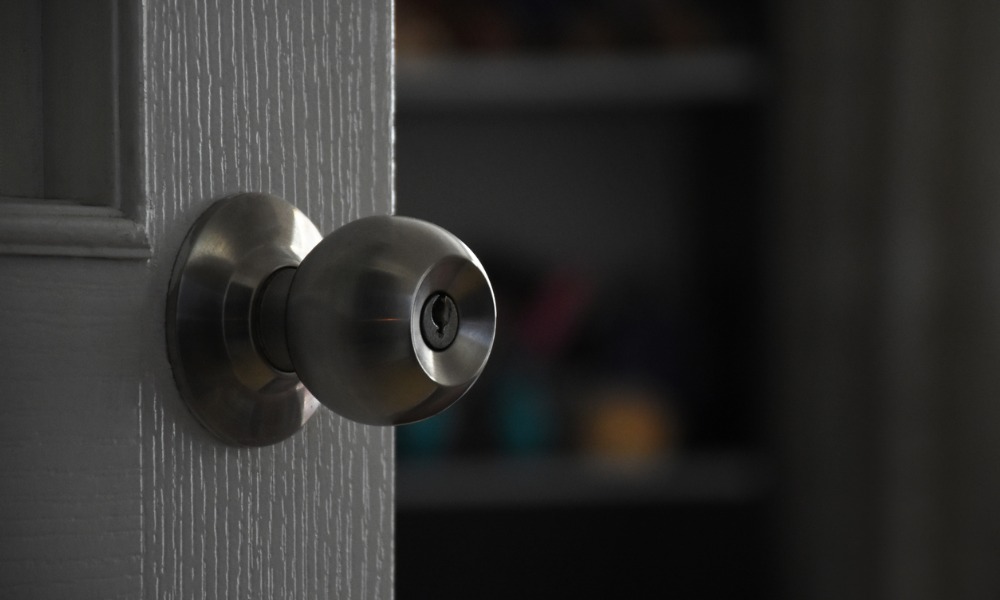
He described his relationship with the complainant as 'friends with benefits'

The NL Supreme Court has acquitted the accused in a breaking and entering case upon finding that he reasonably believed he had permission to enter the complainant’s apartment.
In R. v. Kilfoy, 2023 NLSC 91, Jonathan Kilfoy was charged with breaking and entering Amy Drake's residence, unlawfully entering a dwelling house, and willfully interfering with the lawful use of property under the Criminal Code. The trial focused on whether Kilfoy had permission to enter the apartment, whether the door was unlocked, his actions inside the apartment, and whether he was told to leave.
In 2021, the RCMP received a call from Amy Drake reporting that an intoxicated person was in her apartment at Canning Road, Marystown, NL. The police responded to the scene and found Kilfoy approximately 1.5 kilometres away from the property, walking along the road. The officers observed that he was intoxicated.
Kilfoy claimed that Drake had invited him to her apartment, and he had text messages to prove it. He described his relationship with Drake as "friends with benefits," indicating a sexual relationship without romantic commitment. This arrangement was ongoing for at least six months.
On the night of the alleged offences, Kilfoy had supper and drank in Little Bay. Meanwhile, Drake visited a friend in Marystown. Evidence of text messages between Kilfoy and Drake revealed that they were in contact and discussed various topics that evening. The court found that they exchanged a series of texts in which Drake said she was trying to get a ride home and get some smokes. Kilfoy offered to come and get her, but Drake declined.
Drake testified that when she arrived home, she found Kilfoy lying on her couch smoking a cigarette. She claimed she was "shocked" to see him there as she did not invite him and did not want him to spend the night.
Kilfoy testified that Drake's apartment was unlocked, while Drake claimed that she always locked her door before leaving and unlocked it upon returning home. The court noted no evidence of forced entry, damage to the door or frame, or entry through a window. Drake acknowledged that Kilfoy had previously shown up unannounced at her apartment, and she did not contact the RCMP on those occasions.
The NL Supreme Court noted that Drake did not tell Kilfoy to leave while he was in the apartment. Drake testified that she sat at the kitchen table looking at her phone and "zoned" him out until he got up and left her apartment. At that point, she locked the door behind him.
The court acknowledged that the evidence before it showed that Kilfoy entered and was in Drake's apartment and that he was intoxicated. The parties dispute whether he entered Drake's apartment with her permission, whether the door was unlocked, what he did, and if and when he was told to leave.
Drake argued that she did not invite Kilfoy to her apartment and did not want him to spend the night. Kilfoy testified he believed he was invited and pointed to the texts exchanged that night and their relationship's ongoing nature.
After assessing the evidence, the court found that Kilfoy reasonably believed he had permission to enter the apartment and entered through an unlocked door. The court's conclusion is based on the finding that the parties had a relationship of friendship and physical intimacy. The court also found that the tone and content of the text messages between them support the inference that Drake understood that Kilfoy intended to come over and spend the night at Drake's apartment. The court pointed out that Drake's evidence that she did not invite Kilfoy was inconsistent with the tone and content of her text messages.
Accordingly, the court found a reasonable doubt as to whether Kilfoy "broke into" Drake's residence, an essential element of the crime.
Furthermore, the court concluded that while in the residence, Kilfoy attempted to converse with Drake and did nothing else. The court noted that Drake did not ask him to leave. The court considered this as meaning Kilfoy was not trespassing in the residence.
Based on these findings, the court determined that the Crown failed to prove beyond a reasonable doubt that Kilfoy interfered with the lawful use or enjoyment of the property "by being in the residence unwanted and intoxicated without permission." The court also noted that the offence requires proof of a physical act by the accused that causes interference with the use or enjoyment of property. The court stressed that merely trespassing, even while intoxicated, is insufficient.
Consequently, the judge acquitted Kilfoy on all charges as the Crown did not establish all the essential elements of the offences to the required standard of proof.